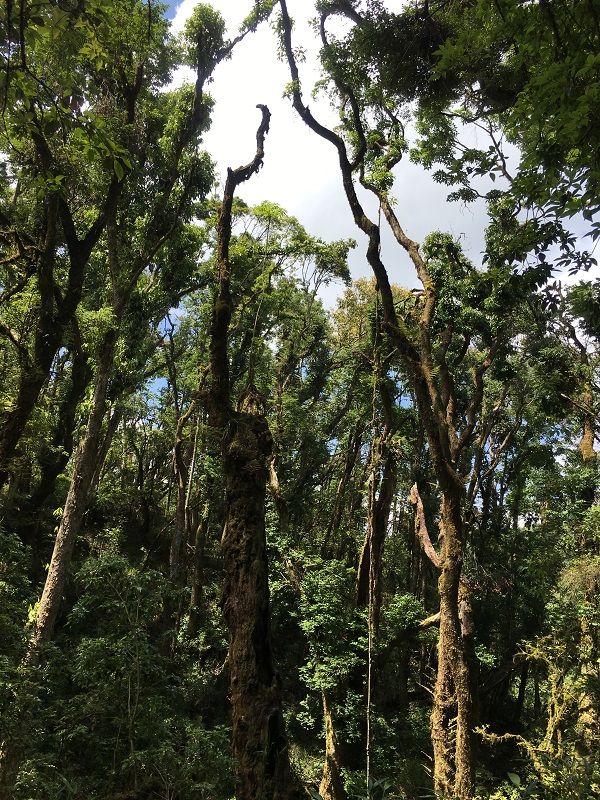Previous studies in Ailao Mountains have recorded 30 species of epiphytic cyanolichens (i.e. lichens that contain cyanobacterial symbionts) dominated by Lobaria retigera. Although a great deal of work has been carried out to evaluate the biomass of this group as well as its contribution to ecosystem nitrogen (N) budgets, empirical studies are needed to confirm the N input responses by cyanolichens under climate change conditions (dry-hot stress) as well as to determine the factors that control this process.
Prof. LIU Wenyao and his team of Xishuangbanna Tropical Botanical Garden (XTBG) conducted a study to assess the possible impacts of climate change via so-called dry-hot stress on the nitrogenase activity of cyanolichens in Ailaoshan subtropical montane forest.
The researchers transplanted L. retigera at sites at different elevations, as a proxy for estimating the effect of dry-hot stress on N fixation. The experiment showed that the nitrogenase activity or the estimated mean annual nitrogenase activity of L. retigera is sensitive to simulated climate change conditions.
They also conducted laboratory and greenhouse experiments to understand the interacting influences of water supply, temperature, and light on nitrogenase activity. Thallus water content was a key factor determining the nitrogenase activity of L. retigera in early transplantation while insufficient carbon storage resulting from a combination of warming and desiccation was likely responsible for reducing nitrogenase activity in later months of the transplant experiment.
The results showed that the imbalances in the C budgets caused by dry-hot stress would be the ultimate arbiter in affecting nitrogenase activity in cyanolichens. Climate warming promoted nitrogenase activity when both water and C storage were sufficient, but it suppressed N fixation when those inputs were insufficient.
The researchers thus suggest that dry-hot stress or future climate change will have a negative impact on N and C fixation by epiphytic cyanolichens as well as their biomass accumulation.
The study entitled “Dry-hot stress significantly reduced the nitrogenase activity of epiphytic cyanolichen” has been published in Science of the Total Environment.
Contact
LIU Wenyao Ph.D Principal Investigator
Key Laboratory of Tropical Forest Ecology, Xishuangbanna Tropical Botanical Garden, Chinese Academy of Sciences, Mengla, Yunnan 666303, China
E-mail: liuwy@xtbg.ac.cn

Epiphytic cyanolichens in Ailaoshan subtropical forest.
(image by SONG Liang)

